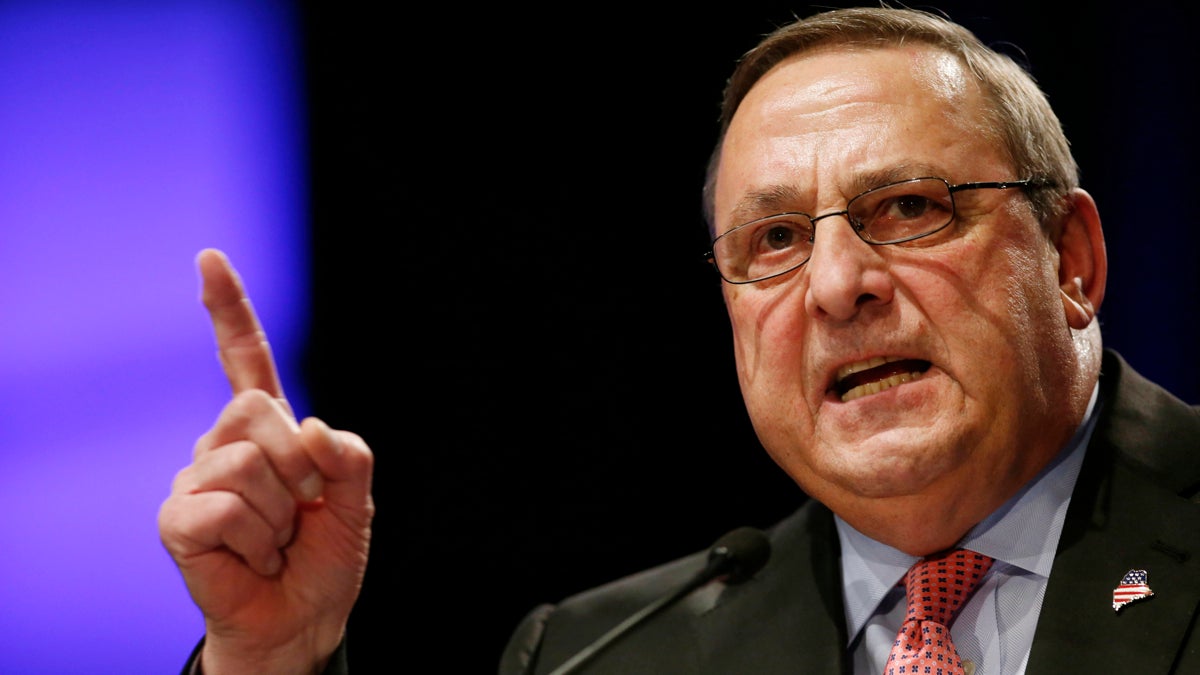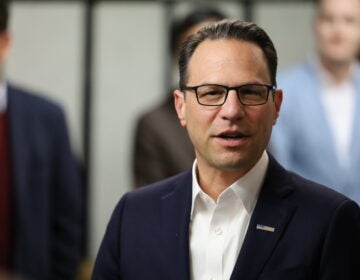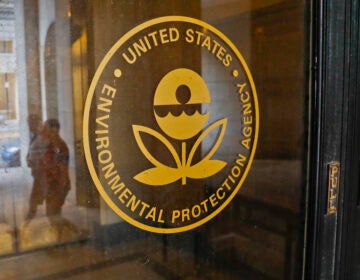When tempted to equate business and government, remember the Maine (experience)

Republican Gov. Paul LePage has alienated Democrats with his bombastic leadership style and some in his own party say his high-profile antics have squandered his political capital. (AP Photo/Robert F. Bukaty, File)
Up in Maine, they have a governor who’s been able to pull off a rare feat.
Paul LePage has united the usually quarrelsome Republican and Democratic caucuses of the state legislature.
Pennsylvania’s Gov. Wolf, in the midst of what will probably will be the first of many bruising budget fights in Harrisburg, can only look on in wonder.
Hold the applause, though. Wolf has little to be envious of. Maine’s harmony across the aisle hinges on this: Everyone pretty much agrees their state’s head honcho is out of control, embarrassing and in need of investigation.
In a unanimous vote, a legislative committee agreed to initiate a probe into allegations that LePage strong-armed a charter school into rescinding the hiring of a Democratic lawmaker. It should be a short probe, since LePage unapologetically says that’s exactly what he did.
LePage, a former discount-chain owner, has been a rolling tempest during his time in office. (By the way, last week he endorsed Chris Christie’s presidential bid. Birds of a feather …)
Some of the turmoil Down East stems from LePage’s blustery, impulsive nature. But some derives from LePage’s fondness for a flawed but common political analogy. Maine’s governor loves to say he’s just running the state the way he ran his chain of retail stores.
Run government like a business. This is a sacred cliche of Republican rhetoric, sometimes echoed by centrist Dems. (Let me hasten to add here that some Democrats have their own pet fallacy, that government should be run as a protective guild for its employees.)
But the idea that government is the same as a business is just not true, and claiming it spawns mischief. When an imperious corporate CEO like Lepage takes over a government and doesn’t adjust his behavior, what ensues are most likely to be gridlock, service breakdowns and talk of impeachment.
Government is emphatically not “just like a business.” Government exists to provide public goods to people living in a defined swath of geography. Businesses exist to provide profits to those who own them. In a business, the shareholders and the customers are a distinct group. In government, they are one and the same.
A person who founds a business can run it however he pleases, within the law. No government CEO enjoys similar free rein. They must compromise. The men who founded our nation a few steps from where I’m sitting made sure of that.
Yes, having one person calls the shots can be efficient. But the patriots of Independence hall had had their fill of such efficiency. Their word for it was … tyranny.
So they designed their new government to be inefficient, precisely to prevent someone with great man complex from running roughshod.
Paul LePage is a man of the Tea Party, but maybe he still needs to be brush up on his Revolutionary-era history.
WHYY is your source for fact-based, in-depth journalism and information. As a nonprofit organization, we rely on financial support from readers like you. Please give today.




